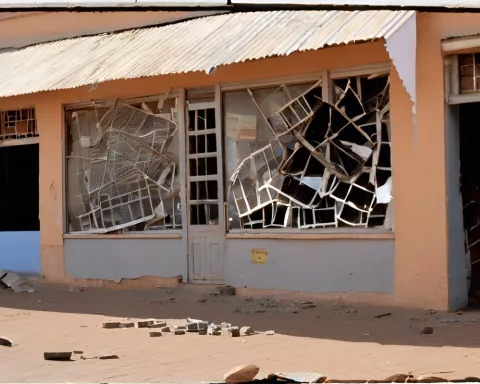Violence Erupts as Taxi Strike Continues
The city of Cape Town has been plunged into chaos as the ongoing taxi strike continues to escalate. On August 5, 2023, taxi operators launched a violent protest against the City of Cape Town’s traffic by-laws. The situation has since deteriorated, with deep-seated tension between the taxi operators and law enforcement.
As the strike rages on, the violence has left a trail of tragedy. On Friday, August 11, Law Enforcement Advancement Plan (LEAP) officer Zanikhaya Kwinana became the latest victim of the unrest. Kwinana, along with two colleagues, was patrolling the streets when they faced an unexpected drive-by shooting. Kwinana tragically succumbed to his injuries at Heideveld Day Hospital.
Authorities Investigate Kwinana’s Death
The Western Cape police are diligently investigating Kwinana’s death. Lieutenant Colonel Malcolm Pojie, the spokesperson for the Western Cape police, has stated that there is a possibility that the LEAP officer’s death may be linked to the taxi strike.
Leaders Condemn the Violence and Call for Peace
In response to the ongoing crisis, Cape Town Mayor Geordin Hill-Lewis has condemned the violence and emphasized the need for peace and stability. The transport minister has also called for a swift resolution to the dispute, urging all parties to find a way to end the unrest.
Despite the violence, local official JP Smith remains steadfast in maintaining law and order. In a recent video, Smith reiterated that the city will not be intimidated by the taxi operators’ violent tactics.
Calls for Justice and a Resolution
Western Cape MEC of Police Oversight and Community Safety, Reagen Allen, has called on the minibus taxi strike’s leadership to condemn the violence and assist in bringing the culprits to justice. The city’s residents now anxiously await a resolution, hoping for a return to peace and stability.












